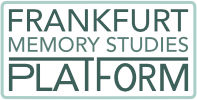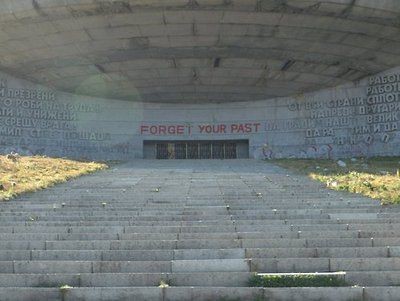Mnemopolitics: Contested Memories and (Ab)uses of the Past
Stockholm, Sweden, 16-19 August 2022
The tenth Mnemonics summer school will be hosted by Södertörn University and its Centre for Baltic and East European Studies from Tuesday 16 to Friday 19 August 2022, and will take place as a hybrid event, both on site at the Sigtuna Foundation in Stockholm and online.
The annual Mnemonics summer school brings together junior and senior scholars in the interdisciplinary field of memory studies, affording PhD students from around the world the opportunity to receive extensive feedback on their projects from distinguished memory experts and to catch up with the newest methodological and theoretical trends in memory studies. Each edition features three keynotes and 24 PhD student presentations followed by in-depth commentaries by senior scholars from partner institutions. Mnemonics is a unique platform for learning, mentoring, and networking specifically designed to meet the needs and interests of the next generation of memory scholars.
Download the Call here.
Keynote Speakers
Lucy Bond (University of Westminster) & Jessica Rapson (King’s College London)
Alexander Etkind (European University Institute)
Siobhan Kattago (University of Tartu)
Participating Faculty
Stef Craps (Ghent University)
Rick Crownshaw (Goldsmiths, University of London)
Astrid Erll (Goethe University Frankfurt)
Hans Lauge Hansen (Aarhus University)
Wulf Kansteiner (Aarhus University)
Brett Kaplan (University of Illinois Urbana-Champaign)
Susanne Knittel (Utrecht University)
Silvana Mandolessi (University of Leuven)
Jessica Ortner (University of Copenhagen)
Anna Reading (King’s College London)
Ann Rigney (Utrecht University)
Michael Rothberg (University of California Los Angeles)
Gabriele Schwab (University of California Irvine)
Hanna Teichler (Goethe University Frankfurt)
Possible Topics
The topic of the 2022 edition of the Mnemonics summer school is mnemopolitics, the politics of memory. Now that belief in the redemptive power of memory and the emancipatory role of cultural heritage has waned, the fields of cultural memory and cultural heritage have taken a politicized if not nationalist turn all over Europe and in many other parts of the world (Gaunt, Lane & M rner, 2020). The past has become a resource to be used for the renewal of nationalist and other political myths. It plays an important role in the formation of political identity and ideology, in what Zygmunt Bauman (2017) called “retrotopia.”This raises the question of how contested memories shape and guide political communities and political action, and how memory is also increasingly instrumentalized for politicalpurposes by state institutions, a phenomenon referred to as “memory-governance” (Belavusau & Gliszczyńska-Grabias, 2017). Sometimes this takes the form of attempts to silence memories and encourage collective amnesia, e.g. through the passing of “memorylaws” (Koposov, 2018), as in Poland, but also other strategies to prevent free historical research. Many governments not only refuse to deal with restitution for past injustices but also forbid access to important state archives, hinder the teaching of the history of contemporary events, and close or withdraw funding from independent research institutions. A recent case in point is the shutting down of Memorial, the Russian NGO working to document the years of communist dictatorship.
The widespread phenomenon of official commemorative politics includes the creation of historical commissions and institutions, legislating politicized interpretations of historical events, establishing new museums of national trauma, getting into international conflicts over interpretations of history, sponsoring history textbooks for schools, erecting statues to national heroes, and instituting new days of national commemoration. At the same time, other types of actors work to enhance public political memory for very different purposes: think of representatives of minorities – usually ethnic, religious, or gendered (Reading, 2017) – desiring political recognition of or compensation for past injustices or traumas. Sometimes this takes the form of standing up and speaking for the forgotten dead (Etkind, 2013), to lend them a place in the national narrative; sometimes it leads to the creation of new monuments, museums, and school textbooks (Gutman & Wüstenberg, 2022). When and how do they lead to new forms of amnesia, and when and how can they serve reconciliation and a democracy to come? For a politics of the future, memory is often what is at stake. We invite paper proposals from PhD students that contribute to any of the aforementioned lines of inquiry or explore their points of intersection. We welcome contributions from across disciplines reflecting on the cultural, social, methodological, or ethical issues in this emerging field of research. Possible topics include, but are certainly not restricted to:
• Memory governance
• Memory laws
• Political (ab)uses of memory
• Memory activism as resistance
• Politics of silence/amnesia
• Memory and political identity
• Memory and historical research
• Memory and the teaching of history
• Memory and heritage
• Memory and transitional justice
• Memory and new nationalisms
• Memory and democracy
• Memory and authoritarianism
• Instrumentalization of memory
• Memory and emancipation
• Memory and reconciliation
• Memory and historical truth
• Necropolitics and memories of the dead
• Memories of victimhood or perpetration
• Haunted histories and the return of the repressed
• Memory genres / mediatization of memory
Find out more here.



